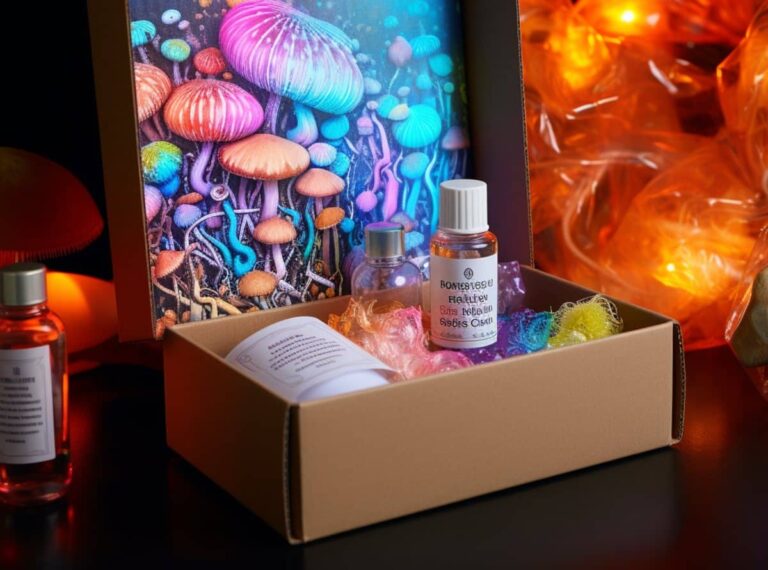The advent of psychedelic assisted therapy has burgeoned much curiosity on the economic logistics of this mental health revolution, and understandably so. With such compelling scientific evidence supporting this psychedelic renaissance, the clamor for health insurance-related answers is growing louder by the minute.
As of right now, discussions surrounding insurance coverage for these advancing treatments aren’t quite as open-shut as we’d hope, but examining their anticipated trajectory is central to the appropriate development of these indispensable plans.
Coverage projections for these therapeutic medicines are heavily reliant on the clinical trial phase that each individual substance is currently in. MDMA, for example, is expected to be the first of many psychedelic drugs introduced to the wider healthcare market and designated by the FDA.
MAPS, the Multidisciplinary Association for Psychedelic Studies, seems to be ahead of the curve in solidifying a strategy on the insurance front, but no objective comes without contingencies.
For insurance companies to invest in these treatments, they must first feel convinced that psychedelic therapy models produce lower long term costs compared to the alternative of SSRIs and traditional talk therapy. The complexity of this feat is saddled by the simple fact that this is the first time our healthcare systems have been met with proposals of a drug-therapy combination, and thus, there exists no instituted framework for this medical approach.
Rick Doblin, founder of MAPS, is quoted saying that MDMA therapy could, in the long run, be more cost-effective for both patients and insurance companies. While SSRIs yield lower month-to-month costs, their wavering effectiveness and short-term nature necessitates prolonged use that could compound to higher insurance rates.
In direct opposition to this daily regimen are the fast acting mechanisms of psychedelic medicines, whose durable benefits may be experienced after only one dosing session. Prominently, psilocybin, LSD, ketamine, and MDMA therapy require an average of 3 annual psychedelic sessions, but some patients may feel remedied by fewer- which bodes well for insurance coverage purposes.
As with any emerging treatment, outset capital usually tails on the costly end until more cost-effective methods are developed and established. Doblin adds that long term follow up with patients will be paramount in gaining the confidence of these insurance companies.
By demonstrating that these medicines disband the routine consumption of psychiatric drugs while offering more effective results, psychedelic therapy companies can encourage insurers to cover the costs of these therapies.
Where Are We Now? Addressing the Current Landscape
The first phase in a clinical trial examines drug safety, followed by phase 2 which hones in on effectiveness, and phase 3 which involves testing on larger sample sizes for both safety and efficacy. Psilocybin is in phase 2 of these trials for treatment resistant depression, major depressive disorder, and alcohol dependency, while MDMA is in phase 3 for PTSD treatment.
Until these drugs have been FDA approved after completing all three phases, conversations are stalled in terms of insurance coverage consideration. Luckily, ketamine has been approved by the FDA for treatment-resistant depression and major health providers have already begun covering patient costs.
Psychedelic company Novamind inc., has secured the approval of Blue Cross Blue Shield, MBA Benefit Administrators, PEHP Health & Benefits, and the University of Utah for direct billing of intravenous ketamine for treatment-resistant depression. As MDMA trials advance through phase 3, we expect treatment coverage to closely follow suit- and the same goes for psilocybin and LSD.
If you live in Oregon, you’ll be happy to hear that in June of 2021, the state’s Psilocybin Advisory Board committed itself to developing a legal framework for the administration of psilocybin in therapeutic settings, over the course of these next two years.
This report will then be presented to Oregon’s Public Health Division, hopefully promoting some headway into the establishment of more concrete psychedelic regulations, both for their functional applications and for disbursement of medical equity within systems of healthcare insurance.
Texas and Iowa seem to be following in their steps, with Hawaii and Florida already submitting similar proposals and Connecticut governor, Ned Lamont, working to convene the state’s very own psilocybin advisory board. States across the country are making significant efforts to decriminalize psilocybin- a notable step toward complete legalization which’ll likely precede more wide-spread health insurance coverage.
While these legislative strides are undoubtedly paving the way for a financially sustainable psychedelic ecosystem, many are still eager to reap the benefits of these therapies without paying the hefty price tag that comes along with them. In the following subsections we’ll discuss your options for partaking in these invaluable experiences while getting the most of your hard-earned money.
Talk To Your Insurance Provider
FDA approval of ketamine therapy is expected to usher in a much broader range of psychedelic treatments covered by insurance companies. Ultimately though, healthcare coverage for psychedelic-assisted therapy is banking on the progression of clinical trials into and through phase 3—MDMA being next up on the roster.
Until then, ketamine therapy is the only medical option available, unless you happen to snag a spot in one of the many ongoing clinical trials. We advise that you speak with your insurance provider to understand their subsidy or coverage policies for ketamine therapy.
Understanding the technicalities of the treatment may help you secure some financial assistance. In some cases, insurance companies consider covering a larger sum of the costs if the treatment is referenced as “an infusion of a generic drug”. Following treatment, your provider will offer an explanation of benefits—a document that delineates the costs accrued by care and portion covered by insurance.
You may also be offered the opportunity to meet the cost of your deductible in order to receive higher coverage. To reduce the unlikely chance of being caught with hidden or unknown fees, make sure you have these discussions with your provider before beginning treatment!
Out-of-Network Benefits & HSA/FSA Accounts
If you have the means to cover the cost of treatment upfront, exploring your provider’s out-of-network benefits may be a viable option to consider. By contacting your insurer and asking about their reimbursement policies, you could be given the option to pay for the therapy out-of-pocket.
Once you’ve paid off your balance, your insurance company may offer to offset a percentage of the cost. Again though, these conversations should always be had before you receive treatment, to ensure clarity and accountability.
HSAs (health savings accounts) and FSAs (flexible spending accounts) are pre-tax banking options that can help you save and pay for out-of-pocket healthcare expenses like copays or psychedelic therapy. If you have a high-deductible health insurance plan, a health savings account may be of benefit to you.
The money you save for medical services are never taxed and the account accumulates no interest on your earnings if they’re being set aside strictly for health care expenditures. Your employer can even contribute money toward this account—making every dollar you spend on ketamine therapy, for example, stretch further than if it were saved in a regular checking or savings account.
A flexible spending account (FSA) helps you set yearly savings goals for these medical treatments by automatically withdrawing monthly, predetermined installments from another one of your bank accounts. This account is also tax free!
Beware though, the money in this account must be completely used by the end of the year. If not, you run the risk of losing your remaining savings. The upside is that an FSA allows you to spend more money than you currently have in the account if your end-of-year estimate is set to reach that amount.
For example, if your savings goal for the year is $2,000 and your psychedelic treatment costs $1,500, but you’ve only saved $300 so far, an FSA allows you to withdraw the $1,500 while continuing to make payments toward your end goal.
Financing & Income-Based Pricing
Many ketamine clinics offer financing plans that segment the cost of your treatment into more digestible, monthly payments. There’s a very high likelihood that MDMA, LSD, and psilocybin-assisted therapy practices will go down the same path, and we should assume it’s only a matter of time before these medicines become FDA approved and are taken under the wing of health insurance companies. While these developments are expected to unfold in the coming years, legislation surrounding these treatments are delicate and still fairly obscure.
Here at Psychedelic Passage, we understand the public need for these treatments to be affordable and accessible at this very moment in time. That’s why we offer income-based pricing that tailors the cost of these therapeutic experiences to your specific earnings.
Studies have already proved the versatility and therapeutic efficacy of psychedelic medicines, but stifled legislation on the matter continues to suspend an eager desperation for those urgently necessitating these treatments. By requiring journeyers to source their own psychedelics, our experienced psychedelic facilitators are able to safely and ethically guide you through a trip without the need to break the bank, in the process.
The Road Ahead
The unmatched results of psychedelic treatments will almost inevitably swindle the enthusiasm and financial interest of healthcare insurance companies, but getting there will require more than some well-founded public endorsement. As psychedelic research companies and non-profit organizations continue to lobby for insurance coverage of these treatments, we’re seeing a convergence of creative minds putting forth avant-garde solutions for this nebulous dilemma.
Recently, these institutions have started leveraging their research findings by suggesting the tenable idea that employers would spend less capital on their company’s health insurance plans if they offered to pay for ketamine therapy instead, which makes a lot of sense.
Emergency hospital visits related to mental health conditions such as alcohol/drug abuse, eating disorders, and self harm could rack up hundreds of thousands of dollars annually. By offering preventative and intervening psychedelic treatment, employers would be investing a fraction of their current insurance costs while maintaining a more productive and less psychologically tolling work environment.
Moving toward more value-based care models is also essential for allocating the committed support of health insurance companies. Psychedelic-assisted therapy with MDMA, psilocybin, LSD, and even ketamine, requires sustained therapeutic attention ranging anywhere from 2 hours to 8 hours.
The resources needed to carry out these treatments are usually the most exhaustive and costly part of the process—arguably the main deterrent for coverage by insurance companies. However, if we can encourage insurers to shift their ideologies by determining financial assistance based on how much change the patient feels, rather than the amount of time and resources used, there’d be a much greater chance for equal access to these breakthrough treatments.
At the end of the day, receiving healthcare coverage and financial assistance for these therapies depend heavily on your medicine of choice, its current place in clinical trials, the ailment you’re intending to heal, and your state’s legislation. Ketamine therapy offers the highest chance for insurance coverage at the moment, with MDMA being fast-tracked by the FDA toward similar approval.
Traversing the ambiguous regulations of psychedelic-assisted therapy can be overwhelming and downright discouraging at times. If you resonate with these feelings, we sincerely encourage you to speak with one of our supportive facilitators.
Aside from the legal bounds currently tussling with the logistics of healthcare coverage, this new frontier of medicine deserves to be preserved by the experiences of people just like you. We’d feel more than fortunate to guide you in the right direction, so you can get started on the next phase of your healing journey, today.
Until then, we hope all of this information has served you in some way. If there’s anything you’re still inquisitive about, take a peek at our resources page for a plethora of blog posts designed to satiate all of your psychedelic curiosities. If we can support your discovery process in any way, please don’t hesitate to book a consultation with us to receive your own custom care plan.
Lorem ipsum dolor sit amet, consectetur adipiscing elit. Ut elit tellus, luctus nec ullamcorper mattis, pulvinar dapibus leo.



